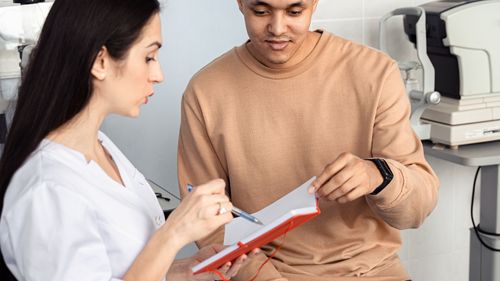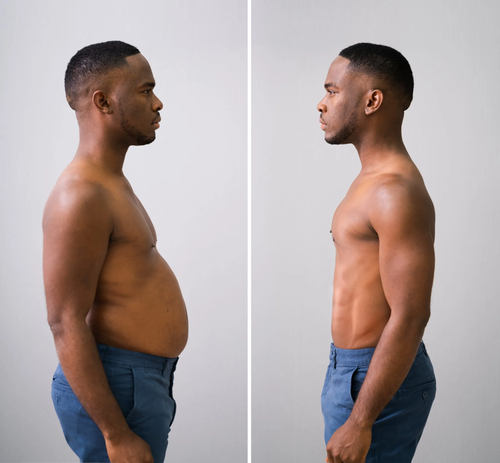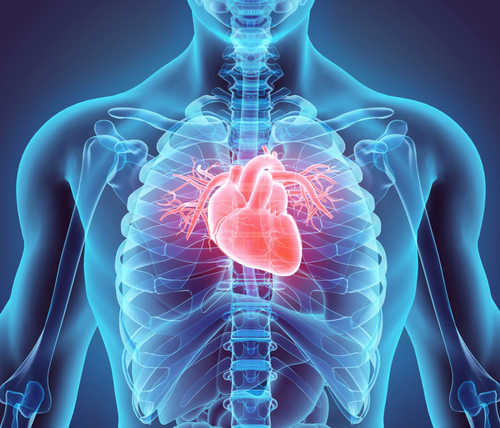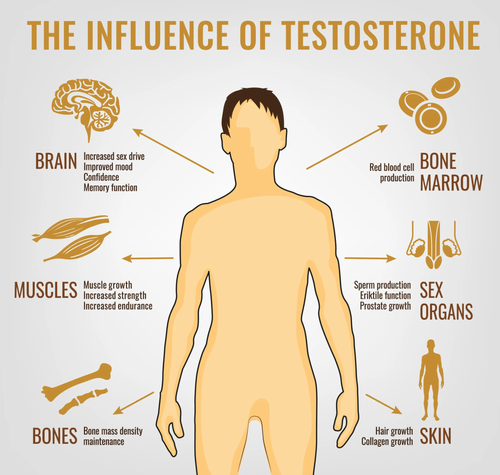Blog
Recent Updates
Testosterone: What Does Sleep Have To Do With It?
A lot of guys work out and lift weights to increase testosterone levels. This definitely helps, but did you know that one of the most important things a man can do to increase his testosterone is sleep? That’s right – when it looks like you’re doing nothing at all, your body is actually very active. While you’re sleeping, it’s repairing damage, synthesizing chemicals, organizing files in the brain, and generally keeping things in good working order. That’s why getting good sleep is so essential to a man’s health.
Not getting enough sleep causes a wide range of health problems. It raises your cortisol (stress hormone) levels, which causes weight gain and irritability. It also contributes to inflammation generally, which can set the stage for atherosclerosis and heart disease, diabetes, and other health problems.
It also has a major effect on testosterone levels. Even in healthy young men, cutting back on sleep causes drastic reductions in testosterone – even after just one week! One study found that reducing sleep to 5 hours per night dropped men’s testosterone levels by 10 to 15 percent.
Having low testosterone also makes insomnia worse. Men with low T tend to have lower quality sleep and fewer deep sleep cycles. As testosterone goes down, cortisol increases, which disrupts sleep in a vicious cycle.
moreWhat Causes Low Testosterone?
Low testosterone is an incredibly common problem amongst middle-aged men. It’s estimated that nearly 40% of men over the age of 45 in the U.S. have a testosterone deficiency. So why is low T so common?
Testosterone deficiency, or hypogonadism, comes in different forms. Primary hypogonadism means there is a problem with the testicles (or testes) themselves. The body is producing hormones to stimulate testosterone production, but for some reason, the testes are not responding. This can be due to congenital abnormalities and genetic conditions, testicular injury, radiation therapy, certain medications, and environmental toxins.
Secondary hypogonadism means the testicles work fine, but there is a disruption in the hormonal signal that tells them to produce testosterone, so they can’t. This is due to a problem with the pituitary gland or the hypothalamus, which can be caused by congenital abnormalities, opioid use (74% of chronic opioid users have low T), traumatic brain injury, benign brain tumors, cancer, malnutrition, and chronic diseases like diabetes, obesity, hypothyroidism, cirrhosis, HIV, and sleep apnea.
moreDoes TRT Increase the Risk of Heart Disease?
I’ve been hearing a lot of concerns lately about whether supplementing testosterone increases the risk of cardiovascular disease. Everyone should understand the risks & benefits before starting a medical treatment, so let’s look at what the evidence says.
Where The Rumor Started
Starting about 20 years ago, the popularity of testosterone replacement therapy exploded. Between 2000 and 2011, testosterone sales increased x 12, looking at data from 41 countries. Three studies were done between 2010-2014 that showed an increased risk of cardiovascular events (like heart attacks and stroke) with testosterone therapy. Not surprisingly, the FDA took note and slapped a black box warning on testosterone noting this so-called risk.
However, these three studies had major flaws in their design and required formal correction by the journals they were published in. The first study looked at men who had had a coronary angiogram, then gave some of them testosterone and others not. They found that the ones who got TRT had a slightly increased rate of heart attacks, stroke, and death from any cause. Well, guess what? If you’re getting a coronary angiogram, which is a test that looks for blocked heart arteries, you usually already have some pretty serious health issues already. That turned out to be the case in this study. Nearly all of the men who got TRT in this study had high blood pressure. About half of them had obstructed coronary arteries. Nearly 60% were obese. About 18% had congestive heart failure. See where I’m going with this? If you already have these health conditions, your risk of heart attack and stroke is already relatively high. It’s also important to note that in this study, it was within the statistical margin of error that there was no difference between the groups at all (in statistical terms, the confidence interval of the absolute risk difference between the groups crossed zero). That’s some pretty weak evidence that cardiovascular risk has anything to do with TRT.
moreWhat Foods Increase Testosterone?
We all know it’s a good idea to eat fruits & vegetables and avoid junk food for good health in general, but what foods increase testosterone levels? How do keto/low carb, Mediterranean, low fat, or vegetarian diets affect testosterone levels? Does diet really make a difference? The answer is yes! The foods we eat affect every part of our bodies, and that goes for hormones (like testosterone) as well.
Before we get into which foods can increase your testosterone level, it’s important to understand how testosterone works in the body. In order to get where it needs to go, testosterone must be attached to proteins in the blood: sex hormone binding globulin (SHBG) and albumin. The vast majority of testosterone in your body is bound to these proteins. In fact only 2% is floating around by itself, called “free” testosterone.
Your “bioavailable” testosterone–the testosterone your body can actually use–is the total of free testosterone and that which is bound to albumin. Your body can’t actually use the testosterone that is bound to SHBG. Therefore, one thing you can do to increase your bioavailable testosterone is eat foods that will keep your SHBG in check.
Omega-3 Fatty Acids
moreTestosterone Does More Than You Think!
Most people know that testosterone is essentially what makes men “men,” at least on a physical level. It gives them a competitive drive, motivation to complete tasks, energy, muscle mass, and libido. Without adequate testosterone, men get lazy, pack on pounds, get flabby, and can’t perform sexually. But did you know that testosterone is also essential for men’s health overall? Every major organ system in the body has testosterone receptors. That means when a man has low testosterone, his entire body can’t function normally.
Let’s get into what testosterone does in a man’s body, starting at the top.
Brain
Testosterone has a major influence on a man’s brain. Adequate levels are necessary for it to function optimally. According to multiple studies, men with optimal testosterone levels have fewer signs of senility than men whose testosterone levels are low. A normal testosterone level has even been shown to protect men from developing Alzheimer’s disease.
Heart
Testosterone is essential for the heart to pump strongly due to various chemical processes that naturally occur in the body. Low testosterone is a major risk factor for atherosclerosis and cardiovascular disease, even in the absence of other health conditions. Studies have shown that when men who have low testosterone are given testosterone replacement therapy, their risk of death goes down by about 50%.
more












